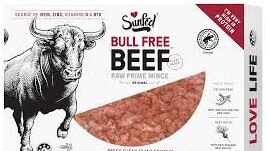Food labelling: Federal government “flat-footed” at the expensive of dairy and meat sectors
Farmers are calling for the federal government to act on its promise of clearer food labelling requirements, amid a flurry of new “mylks”.
Dairy and meat producers are urgently awaiting the federal government’s response to a Senate inquiry into the labelling of non-animal protein products amid a flurry of new “mylks” and “cheeses” onto the Australian market.
United Dairyfarmers of Victoria president Mark Billing has repeated calls for the federal government to act on its promise of clearer food labelling requirements made in the run-up to last year’s federal election.
“If I had the opportunity to raise this with (Agriculture Minister) Murray Watt, I’d tell him that there needs to be clearer labelling over what constitutes milk and what doesn’t,” Mr Billing said.
“Milk is extracted from a mammal, juice from a plant – like apple juice or orange juice. The nutritional value of oat juice or almond juice is often nowhere near that of milk and the additives that go into those products would surprise many consumers.”
Last week Bega Group launched two vegan cheeses to “take advantage of the growing plant-based segment”.
It followed dairy cooperative Norco’s release a week earlier of two plant-based “mylks”, a pea protein and an oat-based product, in acknowledgment of the growing demand for plant-based, cow’s milk alternatives.
“It’s a pressing issue and one we’d like resolved,” Red Meat Advisory Council chief executive Alistair James said.
“The government made an election commitment for clearer labelling so delivering on that is something we’ll continue to push. The plant-based protein sector hasn’t changed its approach, they’re still trying to piggy back off the brands of animal proteins, using terms like beef and lamb.”
The inquiry handed down its final report in February last year. The federal government is yet to table its response, leaving the meat, dairy and plant-based protein industries unsure about whether the inquiry’s nine recommendations will be adopted.
A Department of Agriculture spokesman said work was underway “across government to finalise the government response to the Senate inquiry”.

But Queensland Nationals Senator Susan McDonald, who chaired the 2021 inquiry, said the Albanese government was being “flat-footed” on the issue of truth in labelling and it was at the expense of consumers and the agricultural industry.
“The work of the meat definitions inquiry was incredibly important and supported right across Australia, not just by meat producers but by plant producers who wanted their products clearly labelled,” Ms McDonald said.
“We are now seeing US legislation being introduced and similarly in Europe, and as we move into a world of geographical indicators – things like champagne, prosecco – definitions are becoming increasingly important.”
The rise of plant-based imitations of dairy produce has led to a group of US senators to promote a new bill banning food manufacturers from using phrases like ‘milk’ and ‘cheese’ for non-dairy produce.
Idaho Republican senator Jim Risch has joined with Democrat colleagues to endorse the Dairy Pride Act, in response to a recent regulatory decision in the USA to allow plant-based products to use the phrase ‘milk.’
“Dairy is an essential and foundational part of Idaho’s culture and economy,” Senator Risch told The Weekly Times.
“Products masquerading as genuine dairy are unjustly hurting these hardworking dairy farmers and confusing or misleading to consumers.”
Former Cattle Council Australia board member Gillian Fennell said red meat producers have invested “a lot of their own money” in marketing their products to consumers.
“But let’s be honest here … we feel these alternative proteins are trading on our good name and our reputation by trying to sell a facsimile of what we are producing,” Ms Fennell said.
“I think it’s really important the government carries through with its commitment. I’m aware we had a change of government part way through proceedings … but this new government needs to uphold their commitment to this, and tell alternative protein companies you need to do your own work, and stop trading on the reputation of meat producers.”



